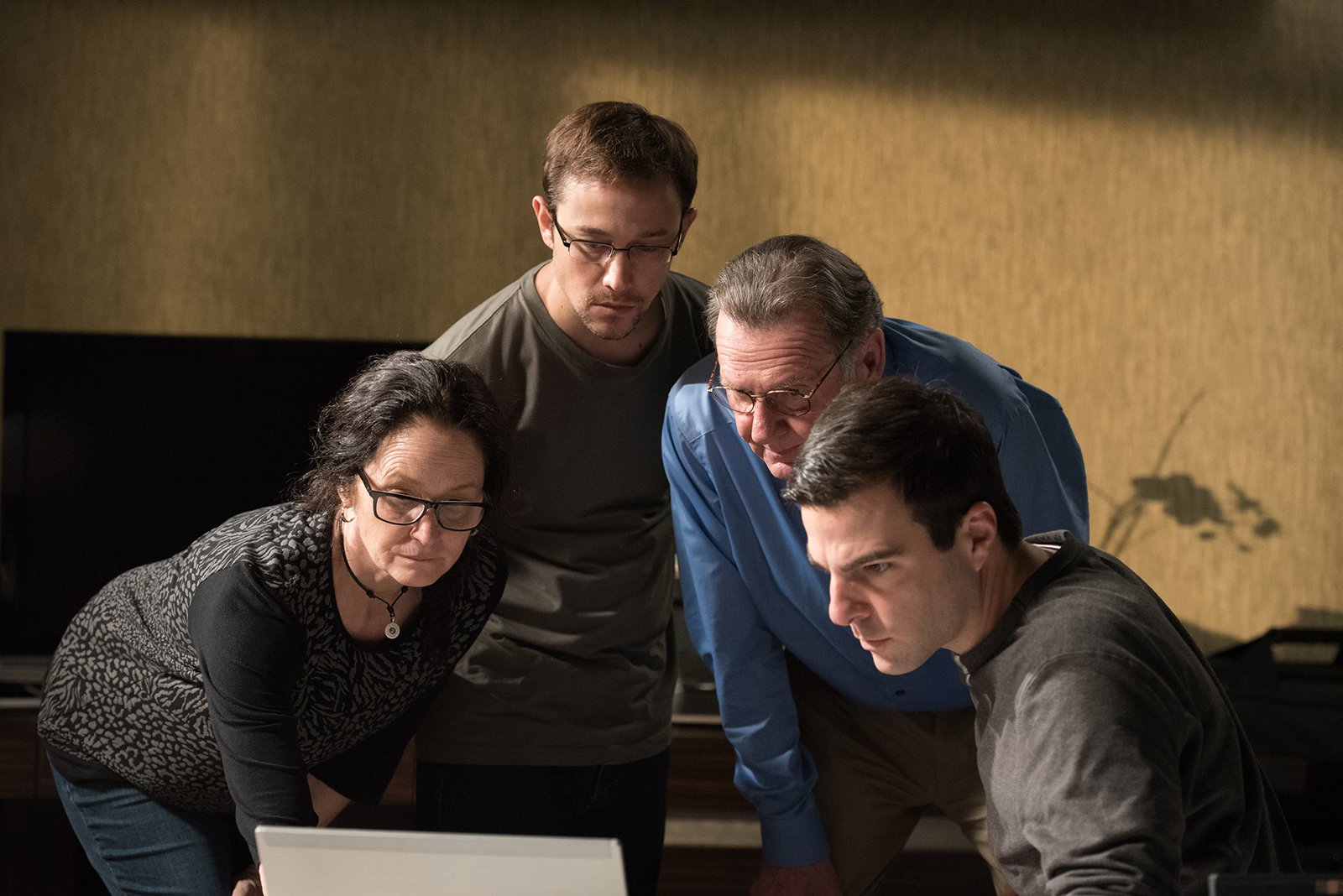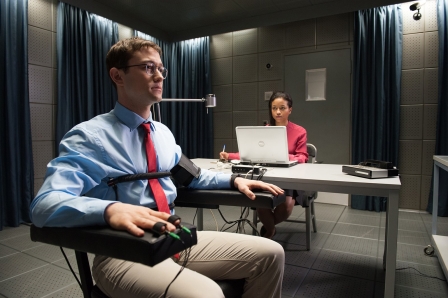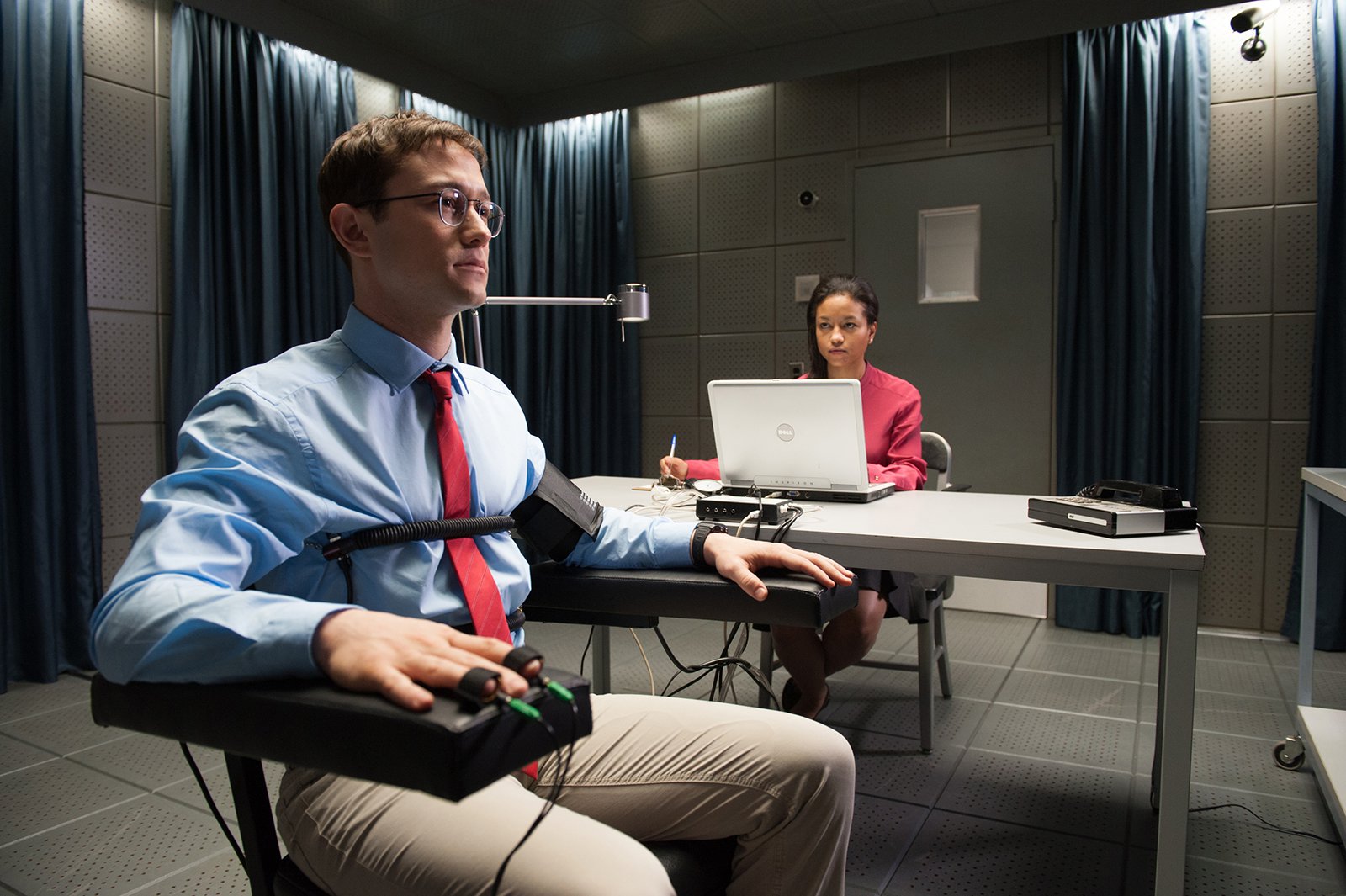‘Snowden’ is a simplistic, but important, reminder of NSA spying
When Oliver Stone’s Snowden was first announced, it seemed far too soon to be retelling the story of the infamous whistleblower. After all, it was only three years ago that the files Snowden leaked led to the world-shaking revelations of the NSA’s massive global surveillance network. That’s not nearly enough time for us to make any sort of substantive historical analysis.
And yet, the film’s proximity to Snowden’s story is a major reason why it works. Outside of techies and privacy advocates, many people don’t seem to be too concerned about the notion of being needlessly spied upon by their government. Snowden, despite being a bit simplistic and old-fashioned, is a solid reminder for normal folks of why privacy issues matter. And it comes just in time: The ACLU and Amnesty International just launched a petition to have President Barack Obama pardon Snowden this week.
Laura Poitras’ excellent Oscar-winning documentary Citizenfour covers the drama around the buildup and immediate aftermath of the surveillance leaks, but Stone’s film goes further back to give us a sense of who he actually is. It starts with Snowden’s (played by Joseph Gordon-Levitt) failed attempt at joining the Army Reserve, but quickly jumps to him joining the CIA as a security specialist. He’s presented as a guy who simply wants to serve his country the only way he knows how: through crazy-good computer skills.
This being a big Hollywood film, a love story also plays a central role. But unlike most biopics, it’s actually somewhat fitting. The real Snowden has been in a relationship for several years with Lindsay Mills, who also ended up joining him in Russia after he settled there. In the film, Mills’ character (played by Shailene Woodley) is just a few indie songs shy of being a manic pixie dream girl. But we also get a sense of how her free spirit might have influenced a patriotic and politically conservative CIA employee to leak classified government secrets.
After leaving his CIA training, we also get to see Snowden in action as a security specialist in Geneva. The film reenacts an event Snowden revealed to the German paper Handelszeitung, wherein a CIA agent gets a Swiss banker drunk on purpose, encourages him to drive home and uses his eventual arrest as a way to make him an informant. It’s a telling story, since it shows his direct experience with the more nefarious side of US intelligence.
That story is also something that Citizenfour didn’t tell, perhaps because it would have been difficult to work into the documentary format. Stone’s film also does a better job of breaking down the extensive nature and reach of the NSA’s PRISM program. An elaborate visualization shows how access to second- and third-degree surveillance targets inevitably leads to needless spying on millions of innocent people. That’s something that was discussed in Citizenfour, but with less of a dramatic (and stylistic) punch. When it comes to simply making the public more aware of Snowden’s persona, and the potential impact of his work, Stone’s film is important.

Still, there are issues. While the film references previous government workers who tried to change surveillance overreach through official means via a composite character (a characteristically baffling turn from Nicolas Cage), it has surprisingly little to say about other whistleblowers. Chelsea Manning, who is serving a 35-year jail sentence for leaking classified documents from America’s wars in Iraq and Afghanistan, isn’t mentioned at all. For a former “bad boy” of cinema, I expected Stone to deliver an even bigger vote of support for whistleblowers in the film.
In a post-screening Q&A session at the Brooklyn Public Library, Stone made the case for granting more protections for whistleblowers. And he also agreed with director Alex Gibney, who recently made a documentary about the Stuxnet worm, when it comes to the threat of cyberwar. Specifically, he believes large countries around the world need to be having discussions about the use of cyberweapons, much like discussions around nuclear weapons.
As a straightforward biopic, there’s a lot to like about Snowden. But I think it’ll be much more useful when it comes to reminding typical moviegoers, who haven’t seen Citizenfour or followed the think pieces and legislative responses, to the NSA’s surveillance apparatus.
(36)





